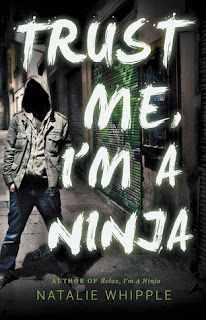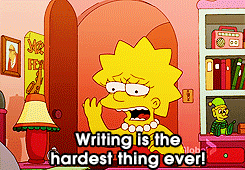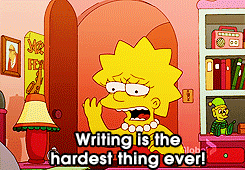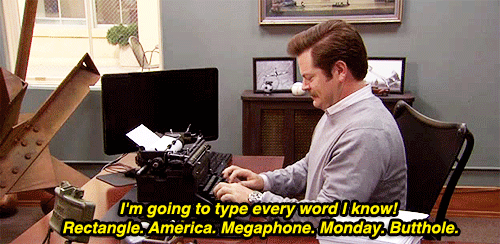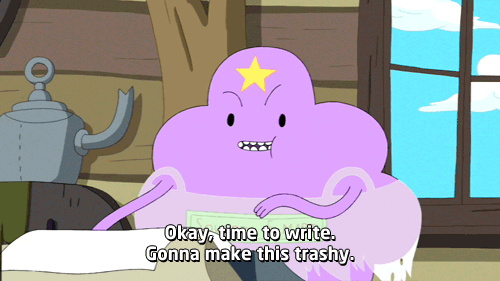Every year, around this time, I like to recap my favorite reads of the year.
A quick look at my goodreads list shows a solid tie between Romance and NA books. And no wonder, I absolutely love the emotional intensity and mature heat level of NA. They are so much fun!
Here are some of my faves, in no particular order.
.......................................................................................................................
1.NA Romance:The Capital Confessions Series (three books) by Chanel Cleeton
This series is classic Chanel Cleeton - meaning it's chock full of authentic, steamy heat. I couldn’t put it down. All three books are a fun read (but the second book was my fave).
2. NA Contemp Romance: Deep Blue Eternity by Natasha Boyd.
This book was gripping and steamy. There is this scene in the rain...it's hot, hot, HOT.
3. YA Contemp/Urban Fantasy: Trust Me, I’m a Ninja by Natalie Whipple
The second book in Natalie's ninja series is aw-some! With ninja’s, high school drama, a crush between two bad ass kids? Um, yes please. I adored this story. Like a lot of Natalie’s books, this one is action packed and full of swoon worthy scenes. I definitely recommend it.
4. Adult Sports Romance: In The Zone (a hockey romance series) by Kate Willoughby.
I'd never read sports romances before my friend recommended them. I started with these hockey romances and fell in love. Kate's stories are hot and sweet. They offer the full package of longing, desire, heat, and happiness. I love these books and think you will too.
5. NA Romance:Fall With Me by Jennifer Armentrout
I adore books by Jennifer Armentrout (aka J Lynn). This book is just as steamy as the rest of her stuff and it’s adorable. I couldn’t put this book down. I believe Fall With Me is my favorite in the series. Did you read any of these books this year? What did you think?
Those are my faves this year.
What were some of your favorite books of 2015?
Thursday, December 31, 2015
Monday, December 28, 2015
2015 Year in Review - and other observations from a caffeinated introvert
This year marks the beginning of a new normal and adjusting to the newness has been tough. New levels of stress have really thrown me off balance.
December has been slower, at least. And this time of year I always like to pause and reflect on what I’ve accomplished. Mostly because no one is going to do it for you (you gotta toot your own horn). And also because it’s empowering to see what all you’ve done with the minutes, hours, and days you’ve been given.
This year has been remarkable and here’s why:
More than 51 thousand words written. Now, that's a lot less than last year. However, I did stop tracking my words after August (because my writing time was random and fleeting so I didn't count words - I more celebrated the fact that I was writing at all!). That’s good considering my law school work took a boat load of my personal time. *0.0*
76 blogs posted
100 + new Twitter followers
12000 blog views (More than double the views from last year)
32 novels read (11 more than last year)
0 writing class attended (unfortunately)
1 WIP completed *woo hoo* and one outlined
0 contests entered. Ooops. Missed that goal but you know what. Primarily because my story wasn’t contest ready this year and there was a lot of stuff to do with school.
I started law school! I did the work and I took the exams. I survived (*just barely*)! Law school is pretty flipping hard so I'm thrilled with my performance so far.
Running took a backseat as school took most of my time. I didn't even make it to the personal trainer appointments (because they conflicted with my school schedule).
But we did run more than 190 miles this year (including the DOPEY CHALLENGE! Check out my Dopey Challenge posts: 5k, 10k, Half, Full, and my Dopey Recap).
There was travel for vacations and business: St. Louis, MO, various parts of FL (including Disney World), North GA Mountains, a Caribbean Cruise AND an Alaskan Cruise!! These trips included hiking, running, tubing, swimming, and time on the beach. I even attended an awesome bike week in Panama City. I spent a lot of time with family which was my ultimate goal.
Overall, I accomplished a good deal - however, I missed some milestones and goals along the way, but the end result was success and momentum. An (not concurrently, of course)d a kick ass first semester of law school.
It’s time to celebrate our momentum and achievements. It's time to look forward to another great year. I, for one, am going to read a book, sleep, and sleep some more.
How do you plan to celebrate?
December has been slower, at least. And this time of year I always like to pause and reflect on what I’ve accomplished. Mostly because no one is going to do it for you (you gotta toot your own horn). And also because it’s empowering to see what all you’ve done with the minutes, hours, and days you’ve been given.
This year has been remarkable and here’s why:
More than 51 thousand words written. Now, that's a lot less than last year. However, I did stop tracking my words after August (because my writing time was random and fleeting so I didn't count words - I more celebrated the fact that I was writing at all!). That’s good considering my law school work took a boat load of my personal time. *0.0*
76 blogs posted
100 + new Twitter followers
12000 blog views (More than double the views from last year)
32 novels read (11 more than last year)
0 writing class attended (unfortunately)
1 WIP completed *woo hoo* and one outlined
0 contests entered. Ooops. Missed that goal but you know what. Primarily because my story wasn’t contest ready this year and there was a lot of stuff to do with school.
I started law school! I did the work and I took the exams. I survived (*just barely*)! Law school is pretty flipping hard so I'm thrilled with my performance so far.
Running took a backseat as school took most of my time. I didn't even make it to the personal trainer appointments (because they conflicted with my school schedule).
But we did run more than 190 miles this year (including the DOPEY CHALLENGE! Check out my Dopey Challenge posts: 5k, 10k, Half, Full, and my Dopey Recap).
There was travel for vacations and business: St. Louis, MO, various parts of FL (including Disney World), North GA Mountains, a Caribbean Cruise AND an Alaskan Cruise!! These trips included hiking, running, tubing, swimming, and time on the beach. I even attended an awesome bike week in Panama City. I spent a lot of time with family which was my ultimate goal.
Overall, I accomplished a good deal - however, I missed some milestones and goals along the way, but the end result was success and momentum. An (not concurrently, of course)d a kick ass first semester of law school.
It’s time to celebrate our momentum and achievements. It's time to look forward to another great year. I, for one, am going to read a book, sleep, and sleep some more.
How do you plan to celebrate?
Thursday, December 17, 2015
TBT: Supporting Small Business aka Your Favorite Author
It's December which means the time to buy gifts for our friends and loved ones is here. And when commercialism takes the stage, front and center, in our lives it's easy to shop big. Heck, it's easy for us to mistake a lot of 'businesses' as big.
I was recently reminded of the 'author-as-a-small-business' paradigm and thought I'd share with everyone. For today's TBT I'm sharing Supporting Small Business aka Your Favorite Author
Enjoy!
-----------------------------------------------------------------------------------------------------
Pursuing publishing as a career has made me acutely aware of small businesses and the way they operate.
Because, *cue big reveal* every author is a small business. Just like your local book store or indie coffee shop is a small business. Even your local doctor’s office, accountant's office, or attorney's office. All small businesses.
Recently, a traditionally published author who I love/follow posted a blog about why she can't give away free stuff. It started a bit of a sensation. In this post she revealed her actual advance and other real elements of her contract with a big publishing house. Of course, a few hours after the post went live she was forced to take it down (it apparently violated the non disclosure terms of her contract). I read it while it was live and understood the main objective to be this: Authors aren't rock stars. They don't get bags of money. They don't get tons of support in marketing their book. And they certainly don't get unlimited free copies of their books they can give away for free.
In other words, authors are small businesses.
Even if an author has a book published by a traditional publishing house they are still, first and foremost, in business for themselves. The big 5 publishing company is just their partner. And it definitely doesn’t mean said author is instantly rich and famous.
Small businesses fight daily to stay a float, to feed their families, and to continue providing their awesomeness to the public. If you can, you should support a local or small business. Because your business, no matter how small, makes a difference to them.
It's something of an oddity to think your single purchase makes a difference in our current global economy. Walmart will go on without you but the local coffee house/bookstore/doctor/lawyer/author needs you.
And you should definitely not steal or use pirated materials. I know, you’re thinking, ‘it’s only one download, or ‘it’s really no big deal,’ or even ‘If they didn’t jack their prices so high I could afford it. They’re really forcing me to steal it.’
Stop right there. Pricing is not a conspiracy against you. It’s business. And business is aiming to make a profit. But not all profit is evil. In fact, I’d argue that no profit is evil (but I digress). Profits are what keep your favorite actor working, or your favorite writer writing. Profits are what keep your favorite TV shows on the air and what drives movies to be made.
You wouldn’t work for free, and neither would your favorite small business person (aka author, actor, writer, artist, doctor, lawyer, accountant, etc.)
Everyone wants to be paid for their work. Be apart of the writing/bookselling economy. Support your favorite authors. #shopsmall
For more on the 'Rich Author Myth' see Wendy Higgins post.
Monday, December 14, 2015
9 Things to Do Before Starting Law School #1Lhell
I'm done with my first semester of 1Lhell. Which means I'm sleeping as much as humanly possible and trying to have fun (you know, that three letter word that was so familiar BEFORE school). So I thought I'd take a moment to reflect over the beginning of it all. If you are starting law school in the future maybe these things will come in handy.
Here are my top 9 things to do before starting law school:
1. Talk to everyone! Tell everyone who will listen that you are going to law school. I mean, don’t be a jerk about it but get the word out. Who knows, someone may know someone who is an attorney and *boom* instant network connection. Networking is a constant in the professional world. For those who haven’t worked in a career before this will come as a shock. For those of you (like me) who are pursuing law as a second (or third) career you know networking starts now. Heck, maybe it started yesterday. Just get to it and don’t worry about sounding silly. You’re a 1L – no one expects you to know everything.
2. Get a good, light weight, laptop. This cannot be understated. You will already have about a billion pounds worth of books to lug around. Who wants to lug around a 5 million pound 17 in’ laptop? No one. *insert aint no one got time for that meme* I use a Microsoft Surface (pro 2) and I love it. Some people will tell you to get a Mac – I’m not a super Mac fan but if that’s what floats your boat then, by all means, float your boat.
3. Get your job sitch figured out – you don’t need any extra stress. Set expectations early with your employer that you will need flexibility in order to make school work.
4. Get your home sitch figured out – home is essential. It’s where you unwind. It’s where you relax. It’s where you spend your time when you aren’t at work or at the library. So start talking to your SO’s or family now. Set expectations with them early and often. This is going to be a HUGE change and they need to be on board. They are your partners in this endeavor. You need their support.
5. Have as much fun as possible – this is your last moment of freedom before you commit to a grueling lifestyle of hard work. Take this moment to celebrate EVERYTHING and ANYTHING! Celebrate getting into school. Celebrate the fact that it’s Thursday. Just be sure you are enjoying life because when things get hard you’ll want happy memories to see you through.
6. Visit family – you may not be able to travel for every holiday anymore. Sure, you have Thanksgiving week off from class but it’s also the last week before finals. You’ll want that time to study. So maybe that means spending turkey day at home instead of with the fam. Plan now for how you will spend your holidays and set those expectations. You’ll feel a lot less stress if you take care of it now. Not to mention the total awesome feeling you’ll get from spending time with your loved ones.
7. Get your personal medical issues in order – I was getting headaches as I studied for the LSAT. I had Lasik about 10 yrs ago and knew it was guaranteed so I made time to visit with the eye doc and find out what was causing my headaches. The issue was nothing that could be corrected with a repeat procedure so it was determined that I needed glasses. Better that I got those glasses before school as opposed to suffering through and then getting them in the middle of first semester. This applies to mental health issues as well. I’m glad I didn’t wait until the semester started to discuss my mental health with my provider. This is serious stuff. You need to take it seriously.
8. Plan to protect your time – a lot of people will tell you that just because you’re in school doesn’t mean you need to give up on the things that you love. If you’re like me and you enjoy running and fitness then schedule time in your day to work out. It’s not enough to schedule the time. You need to protect that time like a momma bear protects her cubs. Luckily for me I’ve learned this skill because I love to write and writing is a task that can get easily run over by the rest of life. Now, this is easier said than done. For example, I regularly miss my workouts and have had to drop writing sessions completely for a while. But it’s not because I didn’t try. I did. I am. And I’m adapting my schedule to what will work.
9. Sleep. Sleeeeeeeeep. For the love of god sleep. You will likely run on less sleep than you thought possible once school gets underway. So make sure you aren’t going into it already operating at a deficit.
Hope these tips help you as you get ready to start your law school journey.
Have you been through 1Lhell? What did you wish you could have done before the semester started? Share here.
Thursday, December 10, 2015
TBT: How To Maximize Your Critique
I've recently had the pleasure of working with some amazing crit partners (CP's). They provide excellent, challenging feedback and help me grow as a writer. But not all CP relationships are productive.
For today's TBT I'm sharing a post on How To Maximize Your Crit. Keep these goals in mind when you start down the CP road. Good luck and Happy Writing!
Enjoy!
-----------------------------------------------------------------------------------------------------
Shakespeare said it best, “get thee to a crit partner.” No? Well, then the internet said it best: “get thee to a crit partner.” Whether you are writing your first or fiftieth novel you need to crit partner (CP). Preferably a team of them – because the more eyes on your book baby, the better. But simply having a CP isn’t good enough, usually. To get the most of your crits you might want to take some of these steps:
1. Define the aim of the crit:
Agree ahead of time on what you want. Are you looking for a big picture crit that examines potential plot holes, character inconsistencies, opportunities for improvement, etc. or more of a line by line (LBL) crit that digs deeeeep into each line looking to correct punctuation, grammar, and language usage. Or what about a Structure crit and evaluates the story structure as a device (beginning, middle, end) and the structure of each chapter. Or some combo of all of those.... It’s best to know what you’re looking for early on. Establish what you need from the crit so your using your CP’s time effectively. Have 3 CP’s? Maybe have each CP read with a different goal. Remember, your CP’s may have different strengths than you – use their strengths to compliment your own. And always, always, be respectful of their time.
2. Break your crit up into manageable pieces:
Revisions can be challenging. Breaking the revisions and feedback into manageable sections can make it feel more manageable. One CP I've worked with had a great system for this. She broke her MS into chunks of 3-5 chapters and sent them to her CP's with deadline 'goals' for having them returned. That way, she could work on revisions her CP’s suggested in chunks while her CP’s were busy reading the next few chapters. Also, it’s way less overwhelming to work on changes/suggestions to 3 chapters than 30.
3. Don’t forget your query letter and synopsis:
If you plan to start down the long, and winding road of querying be sure your CP’s have had a pass at your letter and synopsis. The query letter is so critical because it’s the only thing the Agent is guaranteed to read. If you can’t hook them with the query then they may never read your sample pages or synopsis.
Defining your strategy and goals can help ensure your crits are laser focused and productive. Need more on getting the most out of your CP relationships? Try these posts – list posts.
How do you approach a crit?
Want more about CP's:
SC Write - Handling A Tough Crit
Secret Life of Writers - The Secrets of and Awesome CP Relationship
Ladies Who Critique - CP 101
Writefully So... - What to do with the feedback from a crit
Writefully So... - The importance of taking criticism gracefully (regardless of source)
Monday, November 30, 2015
Here we go - first attempt at 1L exams #1lhell
wish me luck. This week marks the beginning of the end of my first semester of law school.
I'd like to think that I'm ready - that all my hours spent preparing will pay off - but who knows.
I'm hoping to ride the curve to success with the rest of the class. Because, in the end, that's how this works right? We are judged against our peers. If we all fail we all pass. Right?
Because if I'm truly honest with myself, I'm feeling a lot like Michael Scott right about now:
I'd like to think that I'm ready - that all my hours spent preparing will pay off - but who knows.
I'm hoping to ride the curve to success with the rest of the class. Because, in the end, that's how this works right? We are judged against our peers. If we all fail we all pass. Right?
Because if I'm truly honest with myself, I'm feeling a lot like Michael Scott right about now:
Thursday, November 26, 2015
Happy Thanksgiving
I took off work so I could study all week - said no sane person ever. Good thing I'm in law school where being insane is a prereq.
Just wanted to wish you well before I fall into my inevitable carb coma.
Have a terrific Turkey Day with friends and family~
And if you are running a Turkey Trot - good luck and stay warm!
Just wanted to wish you well before I fall into my inevitable carb coma.
Have a terrific Turkey Day with friends and family~
And if you are running a Turkey Trot - good luck and stay warm!
Thursday, November 19, 2015
TBT: Crafting a Query Letter
I've recently been drafting query letters for projects I'm dreaming up. I know, I know, I should be focused on law school and finals but my brain needed a break.
So, for today's TBT I'm sharing my strategy on Crafting a Query Letter. I picked up this lovely method while attending an RWA conference. Have I mentioned lately how much I love RWA? Anyway, this query letter method has helped me hone my query and I hope it helps you, too.
Enjoy!
-----------------------------------------------------------------------------------------------------
Query letters are no joke. It's hard to boil an entire novel down into three paragraphs.
Luckily, I attended RWA's national conference last summer and learned some FABULOUS tips on query letters.
In general, the query should read like the back jacket of a book - high energy, low details, and dripping with suspense and tension.
Yes, but how do a distill all my awesome novel into a letter, you ask?
Simple, follow the format. There is actually a format to a query. Someone at the conference was preaching about structure in queries and it finally clicked. Knowing the format took a bit of the mystery out of it for me.
Think about it like the three act structure in your novel (beginning, middle, end) only in the query it should be something like: Intro, Conflict, Stakes.
In the intro give one or two sentences setting up the character and world/setting. At least one sentence stating what the character wants and why it's important. It's okay to be direct.
Next you have the conflict: What goes wrong?
And then last but not least, we need the stakes: what happens if she fails? What does she stand to lose? What will she have to sacrifice? This should be big so it hooks us to want to read more.
Try this, exercise. Fill in the blank.
"She's a ____________ that wants nothing more than _____________. He's a ____________ that wants nothing more than______________. Together they must __________________ or stand to lose_______________________. "
Ideally, what she wants and what he wants should be in direct conflict with each other. Together, what they must do should push their limits and threaten to unravel them as individuals. What they must do together is the test that makes them grow and change.
This is a good format to start a query because it has the intro, conflict and stakes. This is also the format you would want to use if you were pitching this MS to an agent or editor live, and in person, at a conference or something.
What strategy do you use to craft your query? Share ideas here:
Want more advice on query letters? Check out this post and this one.
Monday, November 9, 2015
Expectation v. Reality - The Curious Case of The Part-Time Law Student #1Lhell
There are certain things you expect when you start out on your law school journey. You expect to work hard. You expect to sacrifice. You even expect to go a little nutz-o when exams loom over you like the shadow of the Grim Reaper. And if you are considering going back to school (meaning law would be a second (or third, or fourth) career and not that k-JD + gap year crap) you probably expect things will be different for you.
And you're right. Things will be different for you. Very different.
Law school is hard and it will be hard for you. But there are a lot of little ways going 'part-time' isn't what I thought it would be.
1. Part-time is really Full-time minus 1 class - Not every school offers a part-time program. The ones that do offer part-time schedules aren't exactly what you might consider 'part-time' in the normal sense of the word. I'm not going to school two nights a week (or even three nights a week), no, I'm going to school four nights a week. First Semester, 1L year, my class load is identical to my full-time day student colleagues with the exception of one class. Now, that's not to diminish the work that day students do. I can't imagine tossing another class into the tornado that is my life a the moment. But it's just one class. Four days a week does not a true 'part-time' schedule make.
2. Constantly disappointing someone - If you are going to school, working, and have a life full of family and friends you will disappoint someone almost daily. That person might be you. Let's face it, you're here, in law school, because you are a go-getter, a do-er, an ambitious destroyer of goals. You get shit done. It's what you do. But now you're in a place where you can't possibly get it all done. You simply can't. I know what you're thinking as you read this, "no, not me. I can get it done. Just because you can't doesn't mean I can't." And maybe you're right. Maybe you're Superwoman/man or maybe you're just in denial. Who knows. Ultimately, there will come a time in your law school career where you will have to pass on spending time with family because of school. There will come a time when you will miss special events or forget birthdays because of school. There will come a time when you will chose to pass on a promotion because you can't manage a new role AND school. And promotions aside, you will likely run into difficulty with work because there just isn't enough time in the day to get work and school and family done at the previously held standards of excellence that got you here.
3. Not giving 100% to anything - Before law school, I would give 100% to my day job and when I was away from the office I would give 100% to my personal life, goals, and relationships. Not no more. No way, no how. I can't give 100% to everything ever day. I'd love to be back in my twenties and going to school full-time. But, alas, those days are behind me. Now I have a job, with clients who need me to solve their problems. And I have a husband, who needs me too. And I have school. There are days that I want to give 100% to work and that means school and relationships suffer. On days when I give 100% to school my other commitments potentially suffer. Which brings me to my next item;
4. Making sacrifices is harrrrrd! - When I got accepted to law school and started considering what sacrifices I would need to make I was riding high on the excitement. But now I'm in the throws of the semester and the reality of everything is hard. Just hard. And with difficult choices come guilt.
5. Limited opportunities - Even though my law school goes out of their way to provide opportunities for their part-timer's there are tons of events that I can't go to because they are offered during the day. Basically anything offered before 6pm is hit or miss. And anything offered at noon is a no-go. It's tough when you want to participate but can't.
6. Feeling left out - Feeling left out can happen everywhere. As number 5 above mentioned, it's easy for a part-time student to feel left out of law school life. But I also feel left out at work and home too. I miss things. People forget to tell me things. I'm just not plugged in like I was before. Some of that is by design. I work less hours for my job and they know I'm going to school so I miss out on work things. At home I'm not as plugged into family events so I miss out on things there too.
Which brings me back to Dory:
There are a lot of ways being an part-time 1L isn't what I thought it would be. But the best part of school so far is all the ways school has been better than I ever imagined. My classmates are awesome and supportive. I love the material. And when everything between work, home, and school gels it's an awesome feeling.
Are you a part-timer? How has your experience been so far?
Thursday, November 5, 2015
TBT: Advice On The Beginning (stuff I picked up along the way) #nanowrimo
For today's TBT I'm sharing Advice on The Beginning (stuff I picked up along the way). (Maybe this will help all you Nano-er's out there). Every page of a book is important but the beginning of a book has to be laser focused. It needs to sell the book to the agent, publisher, and ultimately, reader. There are many right ways to write a book but I wanted to share some of the advice I'd gathered from my many writing classes.
Enjoy!
-----------------------------------------------------------------------------------------------------
I’m not perfect – nowhere close, even, and I still have a lot to learn. But I have taken a few writing classes over the years (At RWA, LitReactor, and WritersDigest) that focused exclusively on the first chapters of a novel. The thought was, if we could get our openings to shine we’d have a better chance of nabbing an Agent. Of course, I think it was implied that we would continue revising and make sure that the entire novel glittered with excellence but in class we only focused on the beginning.
And one of my goals in starting this blog was to give back to this amazing, supportive, online community of writers. To that end, I thought I’d capture some of the fun, and hard, writing advice I’ve gleamed over the years:
Here's what I've learned:
1. Never start with a dream: LOL, I know. But Agents say it's still WAY overdone.
2. Never start with the weather: Again, heard it’s overdone. And opening with weather often fails to move the plot forward so it's wasted words.
3. Cut the first 50 pages of your book: Literally, one teacher, an Agent herself, said to take the first fifty pages and chuck them out the window. I was in shock. But the point the teacher was trying to make is that, usually, a book doesn’t take off until 50 pages in. Which means, do you really need the first fifty pages? The teacher, speaking from her personal (and subjective) experience, said most of the first 50 pages she receives in her slush pile are boring. Her advice doesn’t sound that crazy anymore.
4. Never include a flash back in the first 50 pages of your book: I think this advice goes hand in hand with item 3. The beginning is about conflict, action, and hooking the reader. Flashback's early in the story don't typically hook the reader (um, because we don't care about the characters yet). Save the flashback for the third act.
5. First sentence: This sentence must pop. This one, measly little sentence could be the only chance you get to hook an Agent. So make sure it's full of action. Generally, its advised that the first sentence should not be spoken, as in dialogue. But I’ve broken that rule. Aren’t rules meant to be broken? No, that’s not an excuse to stop improving your craft. *narrows eyes at you* I know what you’re thinking. Just know the rules and understand their value before you break them.
6. First 250 words: These are the NEXT most important words in your entire novel!!! Why? See number 5. An Agent may never read past 250 words. Use these words to setup WHO, WHAT, WHERE, and CONFLICT (It doesn't have to be the main conflict of the chapter but it has to be something). Think about the 250 words like the first scene of a movie. The reader, or movie goer, needs to be dropped into a world. In order to understand the world they need a few key elements: WHO, WHAT, WHERE, and CONFLICT all crammed into the first 250 words. Often, the first chapter will include all of these elements but not the first 250 – but you may have missed your chance. Rework the first 250 words to ensure the reader is dropped into a fully established world from the get-go.
7. First 10 pages: Can you guess where I’m going with this? These are the THIRD most important words in your entire novel!!! Yay! So you got an Agent passed the first sentence. They read the first 250 words and now what? Now, they read the full first chapter and it should be short-ish and punchy. In one class our assignment was to slash our first chapter down to 10 pages. Sounds arbitrary, right? But the point was to laser focus our opening and drill the first chapter down to the most essential facts and details. It was hard, but fun. The essential stuff includes action enough to engage the reader and keep them asking for more. But it's also something that makes the reader connect with the MC. How many books start with someone getting fired, getting dumped, getting lost, failing a class, getting an eviction notice, etc. These are little conflicts (although they seem HUGE at the time to the MC) that propel the MC into the next, MAJOR conflict.
8. Eliminate words that create narrative distance: This is especially important in third person POV but relevant to all POV. Words like "felt" or "Seemed" separate the reader from the story. I put together this list of words that I look for when editing my own WIP's. I cut these words and rewrite the sentences so they are no longer needed. Some of the words I target are: toward, felt/feel, seemed/seem, like, heard, saw, think/thought, looked, got, just, almost, big/small, very, never/often, important, thing/things/stuff, went.
9. Rule of Three (aka, avoiding the info dump): when describing the setting – or ANYTHING, really- pick three important things and only three things to describe. More than three things is generally overwhelming to the reader. This is actually more of a best practice and not really a 'rule' but it sounds catchier as a 'rule' LOL. And it's possible to cut too much, so be careful. But if you’ve been told you info dump in the beginning chapters this is a good 'rule' to keep in mind.
And last, but not least,
10. There’s no single right way to write a book: If someone tells you there is a right way they are wrong (run away from them.) Every class opened with the teacher saying their advice was just guidelines in a highly subjective business. If something resonates with you, great, run with it. IF not, then feel free to completely ignore it, heck, maybe even try Ron Swanson's approach to witing:
It’s a lot of advice to take in. I know. And revising is already hard on the soul. But when revising to make changes associated with this advice I picked one task at a time and applied it through my entire novel. When completed, I’d pick another task and run with that. Focusing on one element at a time made the task of revising more manageable.
Want more thoughts on the beginning? Check out this post on Subjectivity in the First 250 Words.
Breadcrumbs at the beginning of the story by Chuck Wendig
Nanowrimo writing tips – or tips for writing that first draft (also by Chuck Wendig)
Second draft? What’s that?
What writing advice have you picked up along the way? Share what works for you here:
Subscribe to:
Posts (Atom)



